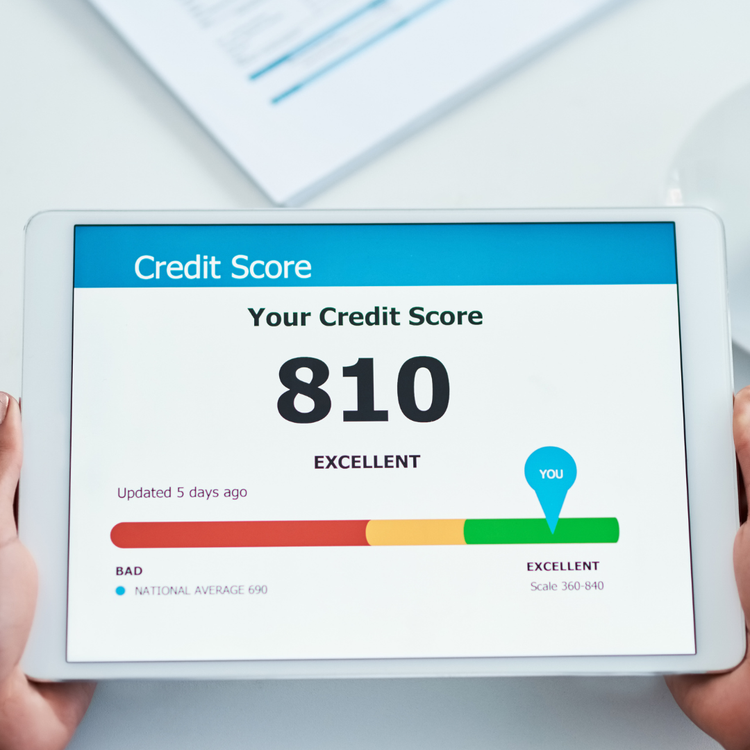Which credit score do mortgage companies use?

Short Answer:
Mortgage lenders use scores from all three credit bureaus: Experian, Equifax, and Transunion. The score used for the mortgage is the middle of the three scores. For example, a client who has 760, 780, and 740 credit scores would have the 740 credit score used for the mortgage. When there are two or more borrowers, the lowest middle credit score is used.
Longer Answer:
One of the questions I get asked is "Which credit score do you use?" It's a great question, as there are quite a few credit-scoring variants.
Mortgage lenders typically rely on FICO scores, the most widely used credit scoring models in the industry. However, it's important to note that there are different versions of FICO scores, and lenders may use specific ones tailored for mortgage lending.
FICO Score Variants for Mortgages
- FICO Score 2 (Experian/Fair Isaac Risk Model v2): This version is often used by lenders to assess creditworthiness for mortgage applications. It focuses on your credit history with Experian.
- FICO Score 4 (TransUnion/FICO Risk Score 04): This score is based on your credit report from TransUnion and is another common choice for mortgage lenders.
- FICO Score 5 (Equifax Beacon 5.0): This score is derived from your Equifax credit report and is frequently used in mortgage lending decisions.
These scores are part of the FICO Score 2, 4, and 5 series, which are specifically designed for mortgage lending. They provide lenders with a comprehensive view of your credit history, helping them assess the risk of lending to you.
Why Do Lenders Use These Scores?
Mortgage lenders use these specific FICO scores because they are tailored to predict the likelihood of a borrower defaulting on a mortgage. They take into account various factors such as payment history, amounts owed, length of credit history, new credit, and types of credit used.
Using the Middle Score
When evaluating your creditworthiness, mortgage lenders typically pull all three FICO scores from the major credit bureaus: Experian, TransUnion, and Equifax. This report is known as a Tri-Merge Credit Report. From this report, mortgage lenders use the middle score of the three as their representative credit score. This approach helps mitigate the impact of any discrepancies between the different credit reports and provides a balanced view of your credit profile. For example, if your scores are 720, 740, and 730, the lender will use 730 as your qualifying score.
What Happens with Multiple Borrowers on Application?
In cases where two or more borrowers apply for the same mortgage, lenders will assess the credit scores of all applicants. They will determine the middle score for each borrower and then use the lowest middle score among all applicants as the qualifying score for the mortgage. This conservative approach ensures that the lender accounts for the risk associated with all parties involved in the loan. For instance, if one borrower has middle scores of 720, 740, and 730, and the other has 680, 700, and 690, the lender will use 690 as the qualifying score for the mortgage application.
How to Prepare Your Credit for a Mortgage Application
- Check Your Credit Reports: Obtain your credit reports from Experian, TransUnion, and Equifax to ensure no errors or discrepancies.
- Improve Your Credit Score: Pay down existing debts, make all payments on time, and avoid opening new credit accounts before applying for a mortgage.
- Understand Your FICO Scores: Knowing your FICO scores can help you gauge where you stand and what improvements might be necessary.
- Talk with a Mortgage Professional: They can provide guidance on what scores are required for different loan products and help you understand your options.
Conclusion
In conclusion, mortgage lenders use FICO credit scores when making mortgage loan decisions. A tri-merge credit report is obtained, and lenders take the middle of the three credit scores as the respective score to determine eligibility for mortgage programs, interest rates, and mortgage insurance.
If you have questions about credit scores, please reach out to me at teamjd@mainstreethl.com
These blogs are for informational purposes only. Make sure you understand the features associated with the loan program you choose, and that it meets your unique financial needs. Subject to Debt-to-Income and Underwriting requirements. This is not a credit decision or a commitment to lend. Eligibility is subject to completion of an application and verification of home ownership, occupancy, title, income, employment, credit, home value, collateral, and underwriting requirements. Not all programs are available in all areas. Offers may vary and are subject to change at any time without notice. Should you have any questions about the information provided, please contact me.
Find more answers to mortgage & real estate questions at www.jdanswersquestions.com
DMV mortgage

